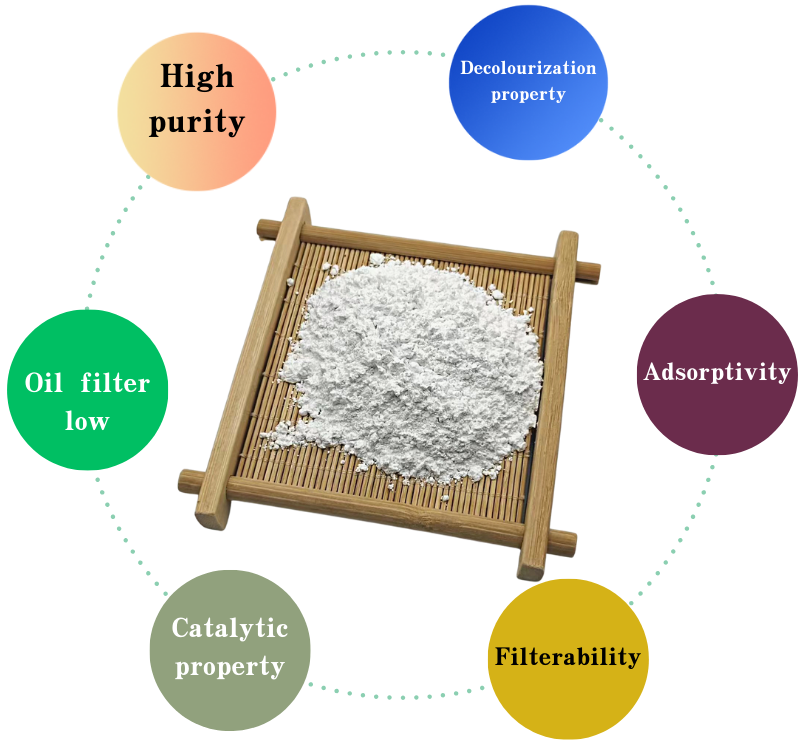
Exploring the Benefits and Uses of Bulk Vermiculite in Gardening and Construction Projects
Understanding Bulk Vermiculite A Versatile Mineral
Vermiculite is a natural mineral that has gained popularity due to its lightweight and versatile qualities. It is formed through the thermal alteration of mica, a group of silicate minerals. When heated, vermiculite expands and creates a lightweight, fire-resistant material that has numerous applications across various industries. Among these applications, bulk vermiculite is particularly noteworthy for its practicality, efficiency, and sustainability.
One of the primary characteristics of bulk vermiculite is its ability to hold water and nutrients. This makes it an excellent soil amendment and growing medium in gardening and horticulture. Vermiculite improves soil aeration and drainage while retaining moisture, making it ideal for seedling propagation and for growing plants in pots. Gardeners often appreciate that it can help prevent soil compaction, ensuring that roots have space to grow and access to essential nutrients.
In addition to its agricultural benefits, bulk vermiculite is used in industrial applications. It is commonly employed as an insulation material due to its excellent soundproofing and thermal insulation properties. Its ability to resist fire makes it a popular choice in construction, particularly in regions prone to wildfires. Vermiculite can be used as a lightweight filler in construction materials, such as mortars and plasters, enhancing both performance and efficiency.
Another fascinating aspect of bulk vermiculite is its role in the realm of environmental sustainability. Vermiculite is a naturally occurring mineral and is non-toxic, making it an eco-friendly choice for various applications. Additionally, its lightweight nature reduces shipping costs and energy consumption when transporting materials. As industries move towards more sustainable practices, the demand for environmentally friendly materials like bulk vermiculite is likely to grow.
bulk vermiculite

In the horticulture sector, bulk vermiculite has emerged as a favorable alternative to other growing mediums. Its neutral pH and non-degradable nature make it an excellent choice for organic growing practices. Unlike peat moss, which is harvested from valuable ecosystems, vermiculite is sourced from mineral deposits, minimizing environmental disruption. As more gardeners and farmers recognize the need for sustainable practices, the role of bulk vermiculite in promoting healthy plant growth is becoming increasingly significant.
Moreover, bulk vermiculite provides benefits in the realm of landscaping. It can be incorporated into potting mixes, or used as a top dressing in gardens to improve soil structure. It serves as an effective growing medium for cacti and succulents, which require well-draining soil to thrive. The versatility of vermiculite allows it to adapt to a range of planting scenarios, further solidifying its reputation as an excellent choice for both amateur and professional gardeners.
As we look to the future, the relevance of bulk vermiculite is increasingly evident. Its unique properties make it indispensable not just in gardening, but also in construction, industrial applications, and landscaping. As industries and consumers prioritize environmental sustainability, the demand for bulk vermiculite and similar minerals is likely to grow. By understanding its myriad uses and benefits, we can make informed choices about incorporating this remarkable mineral into our projects, ultimately contributing to more sustainable practices in everyday life.
In conclusion, bulk vermiculite stands out as a versatile and eco-friendly mineral with significant advantages across various sectors. Its ability to enhance soil quality, provide insulation, and support sustainable practices makes it a valuable resource. Whether you are a gardener seeking to improve plant growth or an industry professional looking for innovative solutions, bulk vermiculite offers a solution that is both efficient and environmentally responsible.
Share
-
Premium Pigment Supplier Custom Solutions & Bulk OrdersNewsMay.30,2025
-
Top China Slag Fly Ash Manufacturer OEM Factory SolutionsNewsMay.30,2025
-
Natural Lava Rock & Pumice for Landscaping Durable Volcanic SolutionsNewsMay.30,2025
-
Custom Micro Silica Fume Powder Manufacturers High-Purity SolutionsNewsMay.29,2025
-
Custom Mica Powder Pigment Manufacturers Vibrant Colors & Bulk OrdersNewsMay.29,2025
-
Custom Micro Silica Fume Powder Manufacturers Premium QualityNewsMay.29,2025






